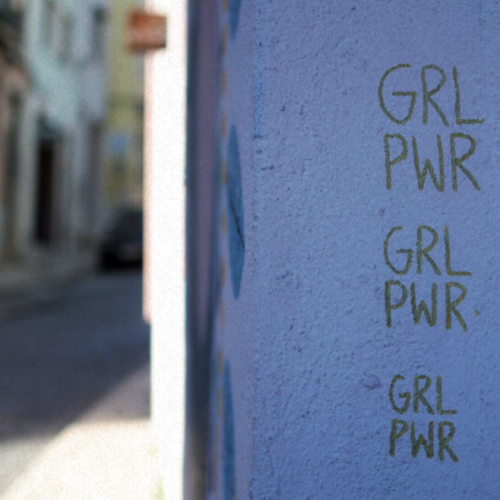Izzy Cutler
Article #2
We Should All Be Feminists
Book by Chimamanda Ngozi Adichie
Amy Irvin, the co founder of the New Orleans Abortion Fund, works in a state that is currently the most hostile place in the country for abortion access. The New Orleans Abortion Fund provides financial assistance to people seeking abortion care in Louisiana, which is something that Irvin knew Louisiana needed. Irvin has seen a lot of the harsh impacts of the unfair abortion system firsthand, which has motivated her work in many ways. Irvin created this fund to try to give women greater access to choice when it comes to their lives and their bodies. The NOAF has shared many women’s stories with abortion, in hopes to further educate the public. Irvin shares these stories as an effort to destigmatize the shame that women are made to feel surrounding their bodies and what they choose to do with them. She speaks on how you do not always hear about women’s experiences with abortion publicly, because women are made to feel ashamed of their choices. The lack of stories in the media only goes to further the stigma. Irvin knows firsthand the struggles for women’s and abortive rights, her first abortion was done when she was a 21 year old college student. It took Irvin nearly 20 years to share her story. As a sexual assault survivor, Irvin was very familiar with being told what to do with her body and feeling like it was not her choice.
Irvin’s first abortion took place in Cincinnati, Ohio. In 2015 there were 20,976 legal abortions done in the state of Ohio. When Irvin first found out she was pregnant, she knew that she did not want to go through with it. Her mother was a single parent starting at the age of 21, so Irvin knew all about the difficulties of trying to start a family so young. Of all single mothers, about 26% of them are jobless and 27% are food insecure. In addition to this, Irvin could barely pay her bills or tuition, let alone years of childcare. On average it costs about $15,000 a year to provide childcare for an infant in the U.S. Irvin drove to her abortion and ran out of gas on the way- she had to borrow a twenty dollar bill from the gas station attendant, because she couldn’t fill her tank. When she arrived, there was a gate in front of the clinic, and a number of protestors were outside waiting for her. Men and women alike were screaming in her face as she tried to push through, all with the same intention of policing her body and her choices. Protestors verbally berated her with each step closer to the gate, some of them exclaiming, “YOU ARE KILLING YOUR BABY” and “YOU ARE MAKING A HUGE MISTAKE.”
Years later, Irvin got another abortion, but this time in Louisiana. She recalls having to jump through many hoops, specifically a 24-hour wait mandatory wait period that prevented women from only making one trip to the clinic. In addition, she remembered being forced to have an ultrasound, which she felt was extremely intrusive. In Louisiana, there is a law that before you get an abortion, women are required to undergo an ultrasound and the mother is forced to look at it. As Irvin looked around at the clinic, she knew that changes were necessary. She saw the faces of women who were yearning for agency in their life. These experiences finally led her to creating the NOAF as a step in the right direction in a state that really needed it.

Writing on wall, Arièle Bonte
For decades, there have been anti-abortion lawmakers in Louisana that are working hard to deny women the access to abortion. Louisiana currently has 89 restrictions on abortion care, the largest number of restrictions of any state in the U.S. Politicians in Louisiana now have a ballot amendment that Louisiana residents will be voting on in November. The amendment on the presidential ballot would take away the right to abortion in the state’s constitution. The wording of the amendment is as follows; “To protect human life, nothing in this constitution shall be construed to secure or protect a right to abortion or require the funding of abortion.” The average cost of a first term abortion is $450 in Lousiana and insurance will not cover it. Abortion is not covered by any healthcare plans and 51% of the households in Louisiana paycheck to paycheck. This harmful amendment would essentially force more than half of the state to choose between access to healthcare or paying their rent. Women in the state of Louisiana should not have to choose between taking care of their bodies as they see fit and essentials like food and rent. Amy Irvin’s motivations for the NOAF stemmed from her own experiences as well as other women’s struggles. Irvin is striving to make Louisiana a place where women have the ability and freedom to make choices about their own body.
 NOLAbeings
Multimedia artist Claire Bangser created NOLAbeings as a portrait-based story project that marries...
NOLAbeings
Multimedia artist Claire Bangser created NOLAbeings as a portrait-based story project that marries...
 Data corner: Adobe Suite (create a PDF, social media graphic, presentation, edit a photo and video
Data corner is where you go to work with analytics and top tech skills. It takes on everything from PERL and SQL to Canva and Sprout Social.
Data corner: Adobe Suite (create a PDF, social media graphic, presentation, edit a photo and video
Data corner is where you go to work with analytics and top tech skills. It takes on everything from PERL and SQL to Canva and Sprout Social.
